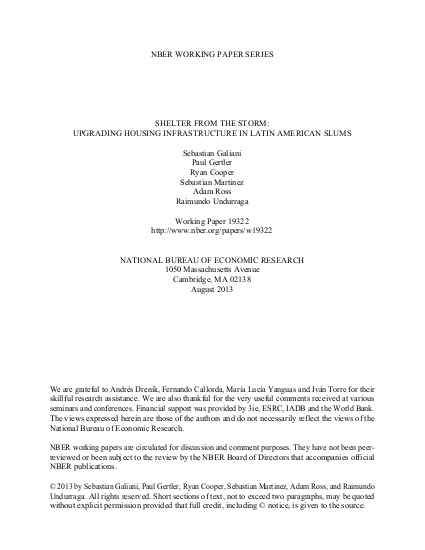
This paper provides rigorous empirical evidence on the causal effects that upgrading slum dwellings has on the living conditions of the extremely poor. In particular, we study the impact of providing better houses in situ to slum dwellers in El Salvador, Mexico and Uruguay. We experimentally evaluate the impact of a housing project run by the NGO TECHO, a youth-led program which provides basic pre-fabricated houses to members of extremely poor population groups in Latin America. The main objective of the program is to improve household well-being. Our findings show that better houses have a positive effect on overall housing conditions and general well-being: the members of treated households are happier with their quality of life. In two countries, we also document significant improvements in children’s health; in El Salvador, slum dwellers also feel that they are safer than before. There are no statistically significant effects on the possession of durable goods or in terms of labor outcomes. Our results are unusually robust in terms of both internal and external validity because they are derived from experiments in three different Latin American countries.
Links
Resource collections
- UN Habitat - Urban Response Collection
- Urban Response - Urban Crisis Preparedness and Risk Reduction
- Urban Response Collection - Community Engagement and Social Cohesion
- Urban Response Collection - Economic Recovery
- Urban Response Collection - Environment and Climate Change
- Urban Response Collection - Housing, Land and Property
- Urban Response Collection - Urban Crisis Response, Recovery and Reconstruction
- Urban Response Collection - Urban Resilience